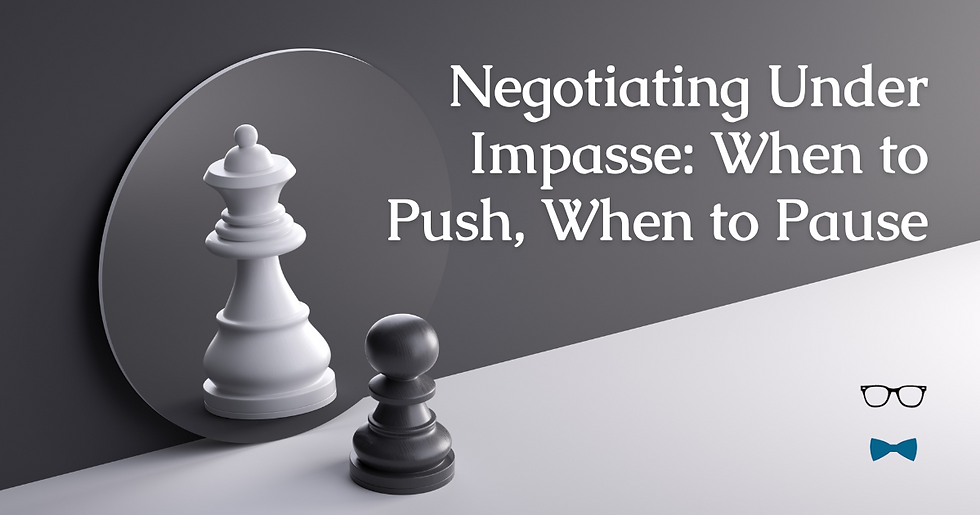Who Is Coming to the Party – the Bankruptcy Mediation?
- Cooper Shattuck

- Sep 14, 2022
- 2 min read

Let's face it. Few would consider a mediation a party. It isn't a ticket that folks are fighting for. But have you ever attended a bankruptcy mediation where someone wasn't present or participating but needed to be? How about one where someone WAS present or participating who DIDN't need to be? Unfortunately, these situations happen more often than they should, and many are easily avoided.
Few mediators or negotiating parties give ample time and consideration to who should be present (physically or virtually) or available (physically or virtually) before convening the first “mediation session.” I put the mediation session in quotes here because I believe that the mediation can start before that initial joint session – with a telephone conference or Zoom call.
Planning and preparation are key to a successful negotiation. Likewise, they are key to a successful mediation.
I like to begin mediation with telephone conferences with the lawyers (individually) for all who are involved in the issue to be addressed at the mediation. I consider the mediation to begin with these calls. One of the things that can be covered in such a call is who should be present physically, who should be present virtually, and who should be available if needed either physically or virtually. It is easier to invite someone to join than to ask them to leave.
Who “should” be there may not be the same as who “wants” to be there or who has been ordered to be there.
Any court order or governing rule that prescribes and defines attendance for mediation should be considered and honored. The rules may prescribe not only who should be there but the conditions under which others are allowed to attend.
There may well be someone who wants to be there but whose presence isn’t conducive to effective negotiation. If they don’t help the process, then they probably shouldn’t be there.
One of the few positive impacts of the pandemic is the familiarity of more individuals with virtual meeting platforms such as Zoom.
While negotiating face-to-face offers many advantages, a platform like Zoom can be very useful to allow participation (either constantly or as needed) with someone who otherwise couldn’t attend or could not easily attend (or who is so ill as a result of being forced to attend that they are not a productive participant).
If someone’s participation is needed on an as-needed basis, Zoom is preferable to them sitting idly by in a conference room isolated from the other participants and even the mediator.
Having them available via Zoom is a fantastic option. The mediator simply needs to ensure that they will indeed be available when needed.



Comments